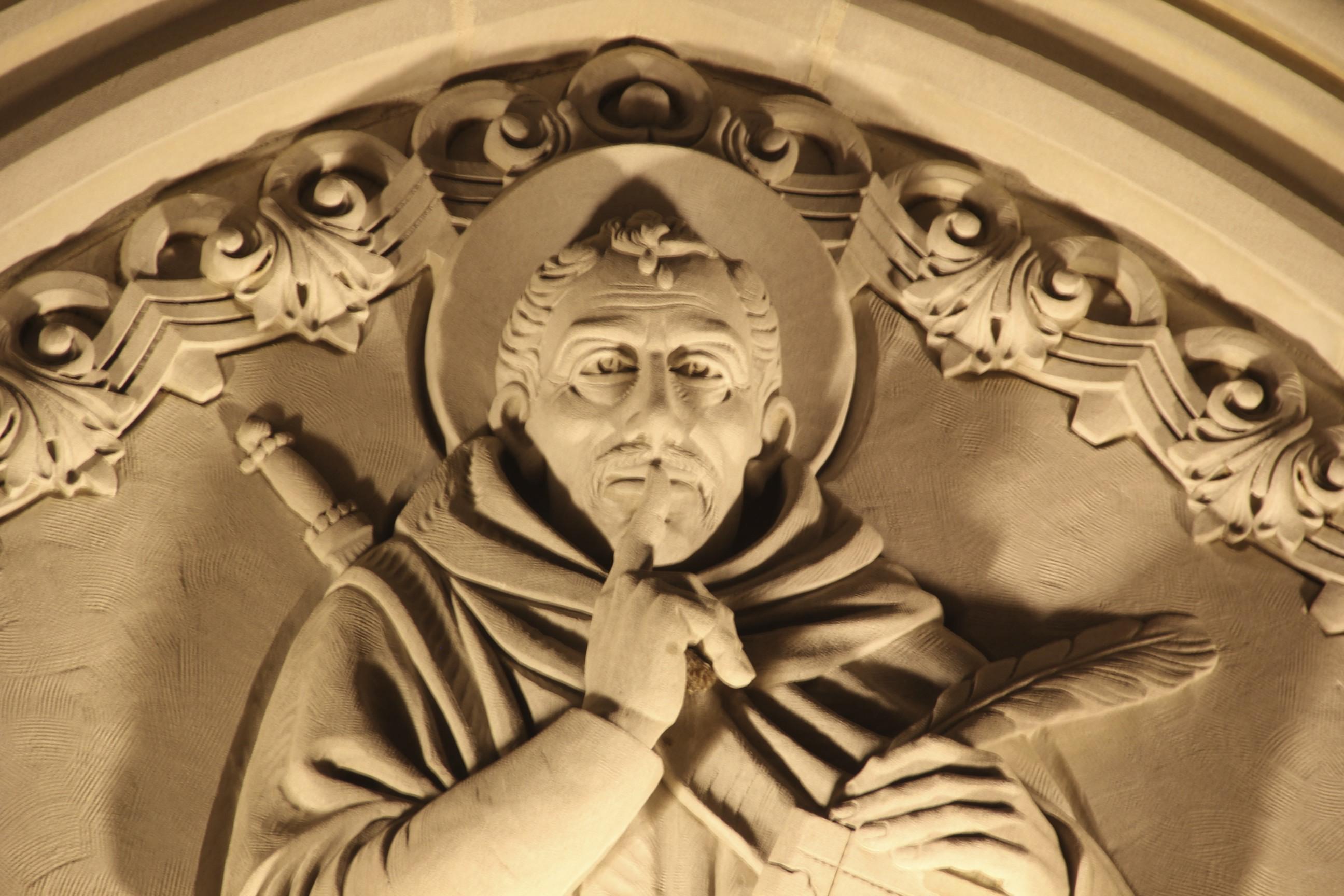In the last year of Aquinas’ life it was remarked by those closest to him that he was becoming more and more abstracted, more and more absorbed in contemplation….At Compline, during the singing of the Media vita, his face was now bathed in tears. And, during Mass, he would appear completely overwhelmed at times by the mystery he was celebrating. On Passion Sunday 1273, with a large group of people present at the Mass, it was noticed that tears were flowing from his eyes, and, so profound was his ecstasy, at one point he had to be shaken so that he might return to himself and continue with the celebration. On 6 December, several months later, finding himself once again rapt in prayer during Mass, something happened, an event of grace so truly overwhelming it was to mark a change in him forever.
…two aspects of this extraordinary event, a ‘physical’ as well as a ‘mystical’ aspect….’The physical basis for the event could have been…an acute breakdown of his physical and emotional powers due to overwork’. That a profound mystical experience can, on occasion, be accompanied by a complete physical collapse is noted…‘a man may die of a broken heart because God works in him so vehemently that it is more than he can bear’. And again: ‘many a man has died of this, giving himself up so utterly to these wondrously great works that his nature could not endure it and collapsed under the strain’.
After Mass that morning, 6 December 1273, Thomas…‘hung up his instruments of writing’. He never complete the Summa. Asked by his bewildered assistant, Brother Reginald, ‘Father, are you going to give up this great work?’ Thomas replied: ‘I can’t go on…Everything seems so much straw in comparison with what I have seen and what has been revealed to me.
St Thomas—the ‘bonus theologus’-leaves us with a final, unexpected word. And the word is silence. This does not mean, of course, that he had no more to say. It means simply that what he had glimpsed, in his ecstasy, was utterly beyond the reach of human thought and human speech. Years earlier, in a treatise on the Trinity, he had written: ’God is honored by silence, not because we may say or know nothing about him, but because we know that we are unable to comprehend him.
…It (St Aquinas final days) is a silence, first and last, of attention to the Word of God, the silence of the grace of listening, the silence of a mind continually amazed at the radiant fullness of truth revealed in Christ. It is a silence of willing obedience to the will of the father, and to the least movement of the workings of the Spirit. It is a silence of love, of Trinitarian communion, a silence of day-to-day intimacy and friendship, a silence which denotes the very opposite of a mere intellectual monologue. It is a silence which, though contemplative of the fact that God is beyond all human thought, all human words, is never for a moment disdainful of the humble words we use when we try to speak of God. It is the silence of a mind utterly at rest in the contemplation of truth, and yet ever restless in its search for a deeper understanding. It is a silence which breathes with that freedom of spirit which comes from the contemplation of eternal things, and yet remains committed always to the immediate task of the hour. It is the silence of a man, living for years in the midst of the ordinary squabbles and conflicts of academe, who was yet able to be somehow at ease, and to live a quite extraordinary interior life. It is the silence of a mystic on campus.
—Paul Murray ‘Aquinas at Prayer The Bible, Mysticism, and Poetry’


